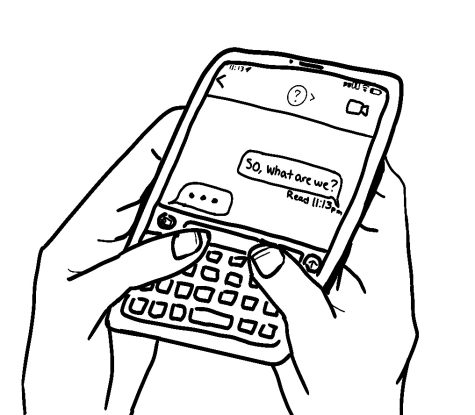Minus the City: Cuffing Season
It’s the most wonderful time of the year, Colgate. Halloweekend is behind us now, mall Santas have come out of hibernation, and we can countdown to Thanksgiving on our fingers – we’re in the throes of cuffing season. I actually wasn’t familiar with the term until a friend recently told me to “prepare myself” for the onslaught of disgustingly cute new couple photos that would clog my Instagram feed. In order to provide myself with a more explicit understanding of the term, I turned to Urban Dictionary, the preeminent authority on the matter, who defines cuffing as, “During the Fall and Winter months people who would normally rather be single or promiscuous find themselves along with the rest of the world desiring to be ‘Cuffed’ or tied down by a serious relationship. The cold weather and prolonged indoor activity causes singles to become lonely and desperate to be cuffed.” I can confirm that the symptoms of cuffing season are sweeping through East Hall, as dorm movie nights have been polluted by romantic comedies and viewers collapse into pining for Ashton Kutcher.
For all those falling victim to cuffing season, my deepest condolences, as the current social climate is not conducive to the romance necessary for cuffing to take place. As an anonymous individual featured on Overheard LA eloquently phrased it, “Like, it used to be people wouldn’t approach you in bars. Now they won’t even approach you online. The entire species of humans will only be continued by high school sweethearts in the Midwest.” People are too afraid of each other and any potential rejection to reach out and perform any of the grand (or minuscule) romantic gestures that build relationships. Although as college students we view ourselves as carefree and spontaneous, in reality we’re careful and calculating. We weigh the pros and cons of everything we do, always attempting to assess the negative consequences that could result from actions as minor as sending a friend request. Any kind of romantic expression is an admission to other people that we have feelings, and that’s the worst thing we can admit; it exposes our vulnerability and practically offers a step-by-step guide on how to hurt us. Because of this, we muffle our desires and intentions and clothe them in obscurity so that no one, not even the person we are interested in, really knows what we want (Example A: waiting a designated amount of time before responding to a text). I don’t think the issue described by the profound Los Angeles resident I quoted earlier is a product of fearing vulnerability in the eyes of a person in who we’re romantically interested. Cuffing spectators terrify us more than cuffing partakers ever will. Any person we try to establish a relationship with is just one person, but we, careful calculators that we are, know other people will no doubt find out about the “thing” we become with another person. Other people become spectators to our emotional trials, and they inspire shame in us. It’s this embarrassment we hope to avoid by feigning disinterest in others.
What we don’t realize is that the spectators are completely fictional. There is no one out there so invested in our love lives that they watch our every move and judge us for it. Everyone is anxious about being perceived a certain way, so everyone is self-conscious and self-centered as a result. No one pays as close attention to us as we do. No one sees our flaws, shame, and pain as plainly as we do.
I hope that you can process this statement and allow it to liberate you. Realize that nothing is holding you back from cuffing but your own self-criticisms and reservations. Good luck to my hopeless romantics this cuffing season, find me in bed watching No Strings Attached.










